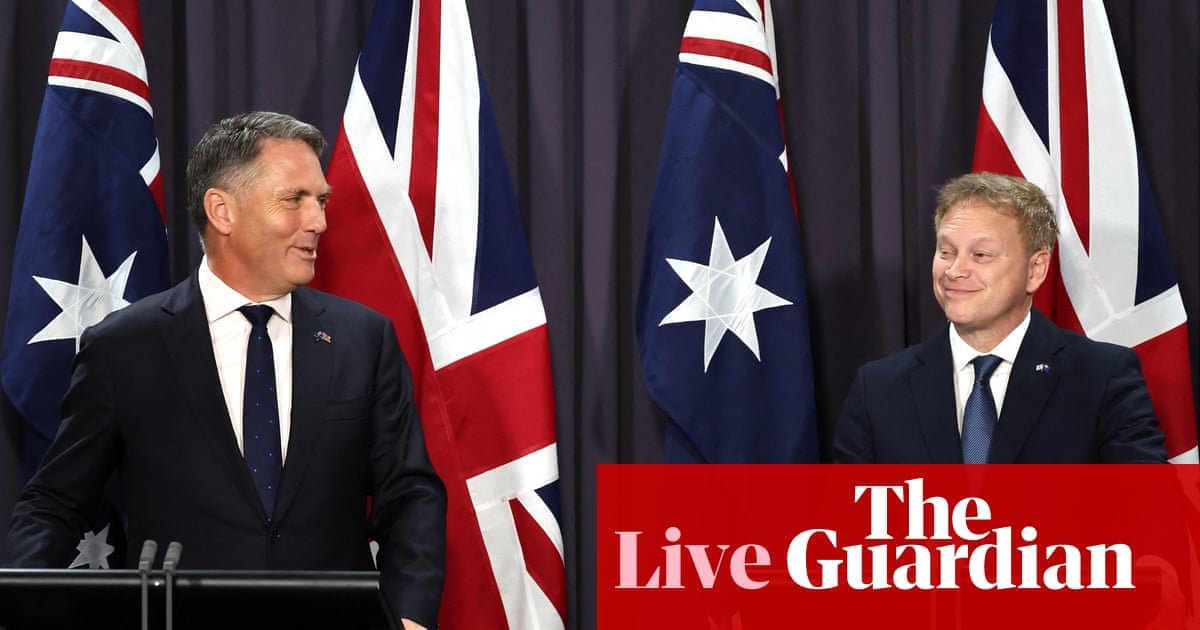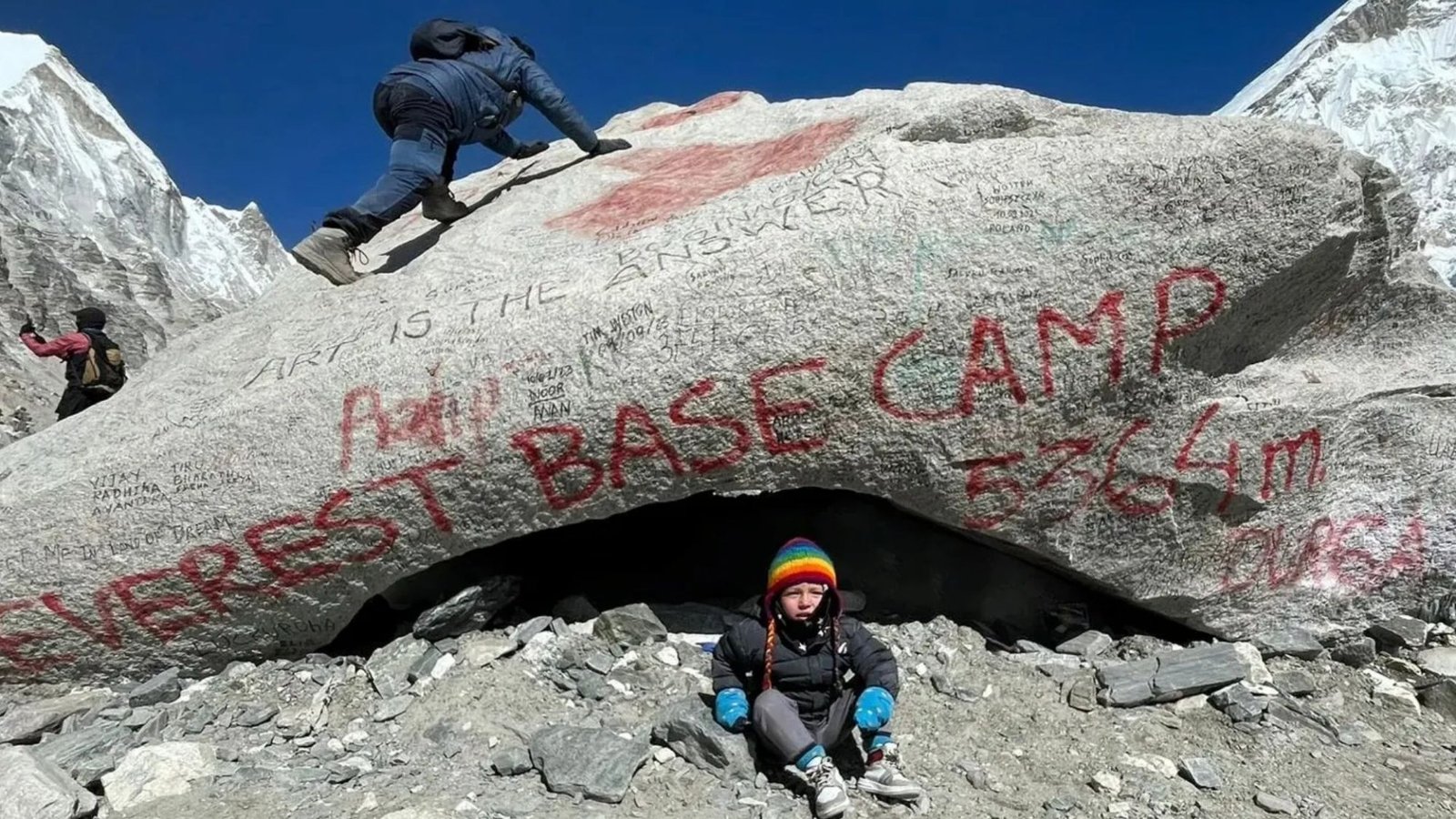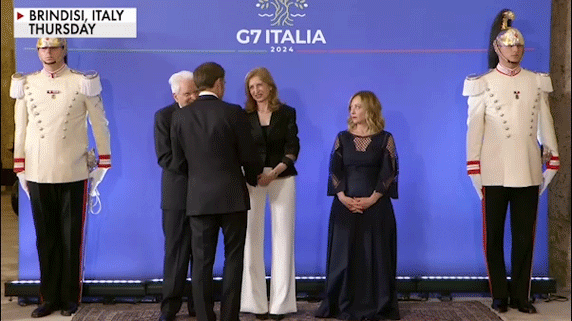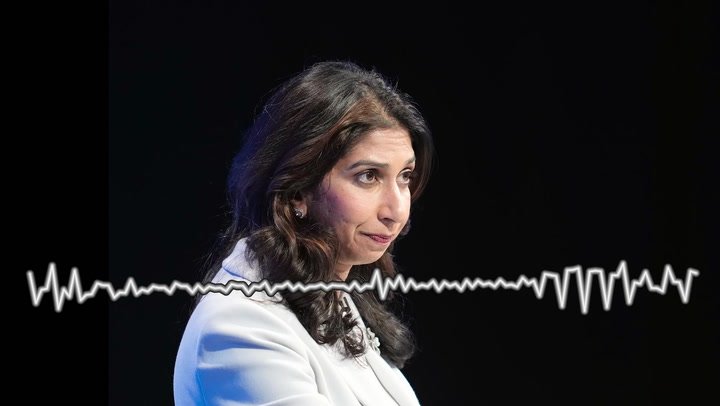Richard Marles and Grant Shapps hold press conference
The defence minister, Richard Marles, and UK secretary of state for defence, Grant Shapps, are now holding the press conference after the signing of the new strategic pact between Australia and the UK.
Marles:
Grant and I were talking about this and we were surprised that such a treaty-level agreement has not existed before. It says a bit about our history; the United Kingdom is of course our oldest relationship and maybe those who have gone before us have just thought this to be assumed, but Grant and I observed it falls to us as the honour of being able to sign this agreement between our two countries.
But what it does reflect is this: whilst the UK is our oldest relationship where the people-to-people links have always been incredibly strong, where there is a deep affection, and where our reflexes and instincts are very similar, what we are experiencing right now is a strategic dimension to the contemporary relationship which in many respects is unprecedented, but certainly has not been in place for decades.
It means that the agreement that we have signed today is very practical, but it is also very timely. It does reflect a relationship which has become much more strategic, a relationship which has a much bigger national security dimension.
Key events
Peter Hannam
The February jobs figures caught many people on the hop. At 116,600 new jobs, the economy added about triple the level expected by economists.
The drop in the jobless rate from 4.1% to 3.7% looks like the largest slide since the economy roared out of the Covid lockdowns (with the rate dropping from 4.6% to 4.2% from November to December 2021).
The ABS recognised there are some quirky things going on about who was about to enter the workforce and when they did, compared with previous years.
In 2022 and 2023, around 4.3% of employed people in February had not been employed in January,” said Bjorn Jarvis, ABS head of labour statistics. “In 2024 this was higher, at 4.7%, and well above the pre-pandemic average for 2015 to 2020 of around 3.9%.”
The participation rate was 66.7%, an increase from the revised 66.6% rate in January. Hours worked rose 2.8%, or 53m, reversing a similar slide in the first month of 2024.
Tuesday’s figures were interpreted by investors to imply the RBA will be less likely to cut interest rates soon. The dollar rose to 66.06 US cents from about 65.95 US cents prior to the release. Stocks also pared their gains for the day from about 0.6% to slightly more than 0.4%.
Prior to today’s jobs figures, markets had been tipping about a one-in-five chance of an RBA rate cut when the bank’s board next meets on 6-7 May. Can expect those meagre odds to get a bit longer now that employers seem to be eager to resume hiring.
Eva Corlett
New Zealand has slipped back into recession, driven by lower spending on food and liquor and weak wholesale trade.
Stats NZ reported the economy shrank 0.1% in the December 2023 quarter, despite record migration and population growth.
The decrease comes after a 0.3% drop in the country’s gross domestic product (GDP) in the September 2023 quarter, meeting the threshold for a technical recession.
Wholesale trade was the largest downwards driver this quarter, led by falls in grocery and liquor wholesaling; and machinery and equipment wholesaling,” said Ruvani Ratnayake, a Stats NZ spokesperson.
Retail trade activity also fell, driven by furniture, electrical, and hardware retailing, and food and beverage services.
Meanwhile, eight out of 16 industries increased, driven by rental, hiring, and real estate services. Increased activity associated with the general election contributed to growth in public administration, safety and defence.
GDP per capita decreased by 0.7 percent in the December 2023 quarter.
Kiwibank said the recession would come as little surprise to the many households “struggling under the weight of high inflation, the rise in interest rates and the fall in house prices”.
Businesses are also suffering under the weight of reduced profitability and weaker consumer demand,” it said, adding that the Reserve Bank should now look to relax interest rates to boost the economy’s momentum.
This week, the International Monetary Fund released its assessment of New Zealand’s financial health, saying the government must keep a tight rein on spending and tax policy reforms were needed, including changes to corporate tax and a capital gains tax.

Catie McLeod
Greens MP Jenny Leong has been kicked out of question time in the lower house of New South Wales parliament.
The speaker, Greg Piper, ordered Leong to leave the chamber after she interrupted to demand that two people be let into the public gallery in the interests of democracy.
It comes after a group of people interrupted question time yesterday to stage a protest in support of Palestine, accusing the premier, Chris Minns, of having blood on his hands from not doing more to support Gaza.
Speaking in parliament this morning, Leong said:
I appreciate that yesterday there was a disturbance but I do think [the] decision to not allow the public into the public gallery during question time … is a bigger concern.
Piper refused, saying he had been told the two members of the public seeking access to the chamber had been identified as two of yesterday’s protesters and he was concerned about the “safety” of the people in the chamber.
When Leong kept speaking, Piper asked her to leave.
Gaza’s health ministry says more than 30,000 Palestinians have been killed since the Israeli military began air and artillery strikes in response to the Hamas attack in October last year, which killed an estimated 1200 people.
The ABS media release gives a little more context to that figure (although you’ll hear from Peter with his analysis very soon)
Bjorn Jarvis, ABS head of labour statistics said: “With employment growing by around 116,000 people, and the number of unemployed falling by 52,000 people, the unemployment rate fell to 3.7 per cent. This was around where it had been six months earlier.”
The increase in employment in February followed a weaker-than-usual outcome in December (-62,000), and a modest increase in January (15,000). This equates to 70,000 more employed people in February than there were in November and a growth rate consistent with the underlying trend.
The large increase in employment in February followed larger-than-usual numbers of people in December and January who had a job that they were waiting to start or to return to. This translated into a larger-than-usual flow of people into employment in February and even more so than February last year.
“In 2022 and 2023, around 4.3 per cent of employed people in February had not been employed in January. In 2024 this was higher, at 4.7 per cent, and well above the pre-pandemic average for 2015 to 2020 of around 3.9 per cent.”
“In contrast, we again only saw around 3.1 per cent of employed people in January leaving employment by February, which was similar to last year and has remained relatively constant over time. This shows that there is a wider gap than we would usually see between the numbers of people entering employment and leaving employment.”

Peter Hannam
Unemployment figures for February released
Australia’s unemployment rate last month plunged to 3.7% from January’s 4.1%, the Australian Bureau of Statistics has reported. The economy added a huge 116,600 jobs in February.
The result compared with economists’ expectations that February’s jobless rate would be 4% with 40,000 extra jobs.

Tamsin Rose
Two NSW mayors say state’s new ‘punitive’ bail laws should be scrapped
Two New South Wales mayors have called on the state government to scrap its controversial bail laws, saying more kids would be locked up if they were passed.
Inner West mayor, Darcy Byrne, said his party was rushing the changes that were being proposed with an election mandate.
He said:
Aboriginal kids are proportionally amongst the most incarcerated young people on earth. It is heartbreaking to see the government seeking to put even more children behind bars.
Youth crime is a serious and complex problem. So is the obscene rate of Indigenous incarceration. This legislation will make both problems worse.
The bill has already passed the lower house and is being debated in the upper house today. Sydney lord mayor, Clover Moore, has also condemned the proposed laws.
She said:
Australia’s punitive response to disadvantage – which has been pursued by both sides of politics for the last 30 years – is not working for offenders or victims of crime, and it’s not working for the community at large. The Legislative Council should not pass this unjust bill.
More here:

Daniel Hurst
Marles and Shapps questioned about Julian Assange
At the end of the press conference, Richard Marles was asked about the Wall Street Journal report that the US was considering a significant reduction of charges against Julian Assange as part of a possible plea deal. He was asked whether this was the sort of breakthrough the Australian government had been pushing for.
Marles said Australia respected the fact the judicial processes in the US and the UK were “independent of their executive governments”.
Julian Assange is an Australian citizen and we have advocated on his behalf as we do on behalf of Australian citizens around the world.
Grant Shapps – asked whether he understood the Australian government position as reflected in the recent motion passed by the parliament – said as a UK cabinet minister he could not comment on matters before the court.
PM to meet Warren Acott, former truck driver raising awareness for motor neurone disease
Anthony Albanese will be meeting with former truck driver Warren Acott, who had been riding his lawn mower from Victorian to Canberra to raise awareness for motor neurone disease. Acott had to give up truck driving after he was diagnosed with MND in July last year.
Acott continued his trip despite falling out of his wheelchair this week and hitting his head on the concrete, necessitating a trip to hospital, while on the final highway stretch.
After being cleared by Wagga Wagga hospital, Acott pushed on. He’ll meet with Albanese very soon.
On the capability question, Richard Marles also had something to say:
Firstly, the time frame for when we would be completing the first SSN Aukus submarine in Osborne is in the early 2040s. It is a challenging timeframe and some people look at that as being a long way into the future, but it is a challenging timeframe.
We are really mindful that every day between now and then counts and it’s why we are operating at a pace right now and, of course, the significance really of doing Aukmin in Adelaide is about providing us the opportunity of going down to Osborne to see that.
But, you know, we have also been really aware of the stretched industrial base in the UK and in the US, which has been part of the conversation that’s been had here over the last few weeks as well. None of that is news, but it is why a year ago when we signed up to Aukus, we made a commitment to make a financial contribution to the industrial bases of both countries which was not without controversy so that, you know, they could produce at a rate which would allow this to happen.
Shapps says Aukus submarine production to be bolstered by 2.5% defence spending goal for UK
Grant Shapps takes this questions:
Britain’s submarine industry has been struggling after years of underinvestment. How will, then, Britain have the capacity to support Australia’s submarine build? And isn’t the Aukus submarine timeline wildly optimistic in that case?
Shapps asks for the media organisation the journalist is from. Told it is the Australian, he says:
The Australian. Should definitely be working for Fleet Street. It’s a spot-on British attack line.
To the crux of the question, Shapps says:
Look, first of all, I think you make a fair comment, actually, which is, you know – and it’s really what I was getting to at the Lancaster speech in London. The world – after the Berlin Wall fell and after the cold war – thought [it] could get into a much more relaxed state.
We saw defence spending fall and that happened in the United Kingdom, it happened elsewhere. The peace dividend was taken, once, twice, three, four times.
You can’t carry on doing that. We recognise that a number of years ago and we have been increasing our defence budget.
We always stayed above the 2% which for Nato was always the figure. We always stayed above that, but we are now committed to raising it to 2.5% as time allows and we’re on the second half of that. So we’re about 2.27%, 2.28%. So we have started to recapitalise. We are recapitalising, rising on submarine production, in a very big way.
Shapps hopes military action against Houthis shows ‘there’s a price to pay’ for ‘interfering with open waterways’
Asked if the UK would like to see Australia do more in the Red Sea, Grant Shapps says:
There are different types of nations in the world. There are nations who say they want something to happen, there are nations who put their, you know, effort behind it and actually sign up to it …
Australia didn’t just sign up to Operation Prosperity Guardian, which is … those who just say that they want to see freedom of navigation in the Red Sea. Richard specifically signed Australia up to supporting the actual action on four separate occasions the UK, the US have actually taken military action against the Houthis.
…I very much hope that the situation in the Red Sea will be resolved and that we don’t need to keep going to military action. We’re in the trying to expand that action. We’re trying to ensure that the Houthis understand that there’s a price to pay and anyone else who is going to interfere with open waterways understands there’s a price to pay as well. So we’ll keep that all under review.
And on the “drone coalition” agreement struck today, which will see Australia join with the UK and Latvia in providing drones for the Ukrainian effort to repel Russian forces, Shapps says:
I’m also very, very excited that you’ll be joining the drone coalition. Drones are a new factor in that war. Two years ago play add very small part and now are playing an increasingly significant, increasingly sophisticated part.
Countries who invest in the drone coalition are not just doing it for Ukraine, of course that’s the primary purpose, but also because it stands as a potential to bring huge technological improvements and advancements in drone technology to our home markets as well. For defence and for civilian purposes.
Your foresight investment in the drone coalition will not just help Ukraine, it will help Australia as well and we look forward actually to working with you on that technology, sharing the technologies between us and makes us all stronger as a result.
Shapps continues on the Ukrainian situation:
I think the biggest threat that the world faces today is a sense of attention deficit from countries that believe in freedom and democracy and … we must be prepared, therefore, to make sure that does not happen and the battle in Ukraine, where I was the week before last speaking to Zelenskiy is at the forefront.
If it were the case that an autocrat could walk in, take over land and then end up keeping that just because although we said it couldn’t happen, but we lost focus and attention and then that would read across to other parts of the world and in particular the Indo-Pacific …
So I am hugely grateful for the leadership you have shown with international fund for Ukraine and helping to fund the international fund for Ukraine, that is a financial mechanism which means that we’re helping to get Ukraine what they need today to fight that battle. I just wanted to publicly thank you, Richard, for what you have done there.
Grant Shapps:
We are living, as I said in a speech at Lancaster House in London with your chief of defence staff present back in January, in a world which is moved from a postwar world we … considered we lived in to a prewar world wherein … we need to be more prepared than ever before – our stance needs to change and there’s evidence of that everywhere you look.
You mentioned what’s happening in Ukraine, and even though it’s happening on a different continent a long way from here, the read across is so blatantly obvious that to ignore it would be to do a disservice to everyone no matter where they live, particularly for those of you who happen to live in the Indo-Pacific region where … anyone who doesn’t have to answer to voters is looking at what happens in Ukraine and deciding whether all you need to do is out wait the west and the civilised world in order to keep what you have gained through ill-gotten means.
‘We could not possibly be closer despite it being almost impossible to be geographically further apart’: Shapps
It is Grant Shapps’ time to speak and he too mentions the lack of formal agreement between the two nations:
I just wanted to say … it is extraordinary, actually, the United Kingdom and Australia didn’t already have a defence cooperation treaty in place, that is actually not quite as much as an admission as first sounds, there’s an assumed treaty in place without it even being formally passed but I’m pleased we overwrited that.
We signed, half an hour ago, a treaty which will bring us even closer together. And you’re right about everything that you have just said.
In fact, we met for, I guess, 1.5 hours earlier and as I came out the room I turned to my team and my first comment was, “We could not possibly be closer despite it being almost impossible to be geographically further apart.”
By that, I mean, our view and world outlook is very, very similar. Our understanding of the world order almost identical and the need to act together never more pressing than it is today.
Marles says Labor ‘very proud’ to pledge contribution to UK fund supporting Ukraine
Richard Marles then turns to Ukraine:
Ukraine is the most acute example in the world today of the pressure that the global rules-based system is under.
This is a critical moment in the conflict in Ukraine.
We very much acknowledge the leadership of the United Kingdom in supporting Ukraine in their fight against the appalling invasion by Russia.
It’s critically important the world stay its course right now to ensure that Ukraine is able to resolve this conflict on its terms. And the UK is right at the forefront of that. Recently, we have announced a contribution to the UK fund which is supporting Ukraine and we’re very proud to do that.
Today we also announce that Australia will participate in the drone coalition which is being led by both the United Kingdom and Latvia. This is a really important opportunity for us to continue making our contribution to the effort to have Ukraine stay the course and be able to resolve this conflict on its terms.
We will have more to say about that in the coming weeks and months.
Richard Marles and Grant Shapps hold press conference
The defence minister, Richard Marles, and UK secretary of state for defence, Grant Shapps, are now holding the press conference after the signing of the new strategic pact between Australia and the UK.
Marles:
Grant and I were talking about this and we were surprised that such a treaty-level agreement has not existed before. It says a bit about our history; the United Kingdom is of course our oldest relationship and maybe those who have gone before us have just thought this to be assumed, but Grant and I observed it falls to us as the honour of being able to sign this agreement between our two countries.
But what it does reflect is this: whilst the UK is our oldest relationship where the people-to-people links have always been incredibly strong, where there is a deep affection, and where our reflexes and instincts are very similar, what we are experiencing right now is a strategic dimension to the contemporary relationship which in many respects is unprecedented, but certainly has not been in place for decades.
It means that the agreement that we have signed today is very practical, but it is also very timely. It does reflect a relationship which has become much more strategic, a relationship which has a much bigger national security dimension.
The health minister, Mark Butler, is about to hold a press conference about his vaping reform legislation.
You can catch up on some of the political challenges ahead for the government here:









